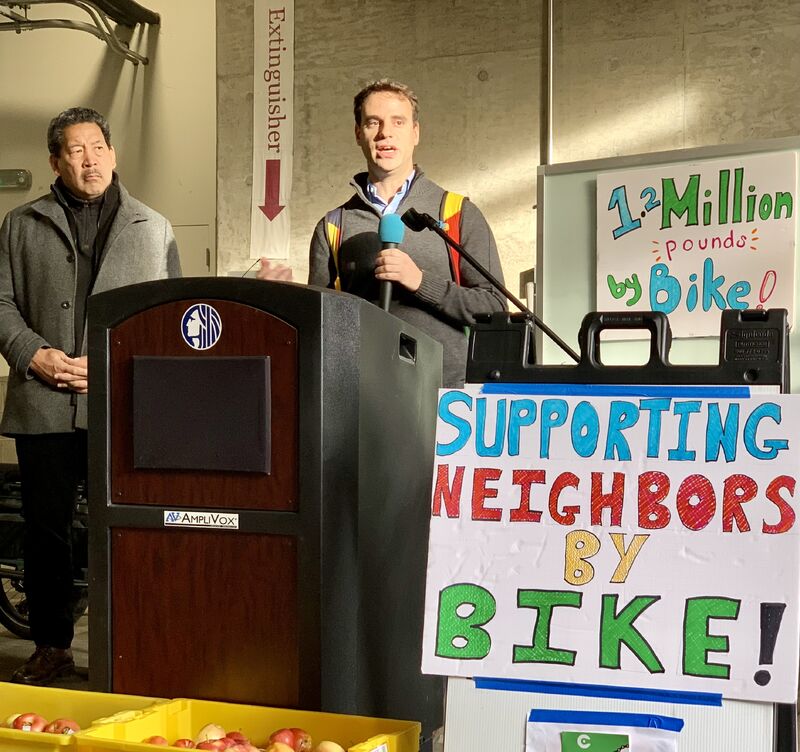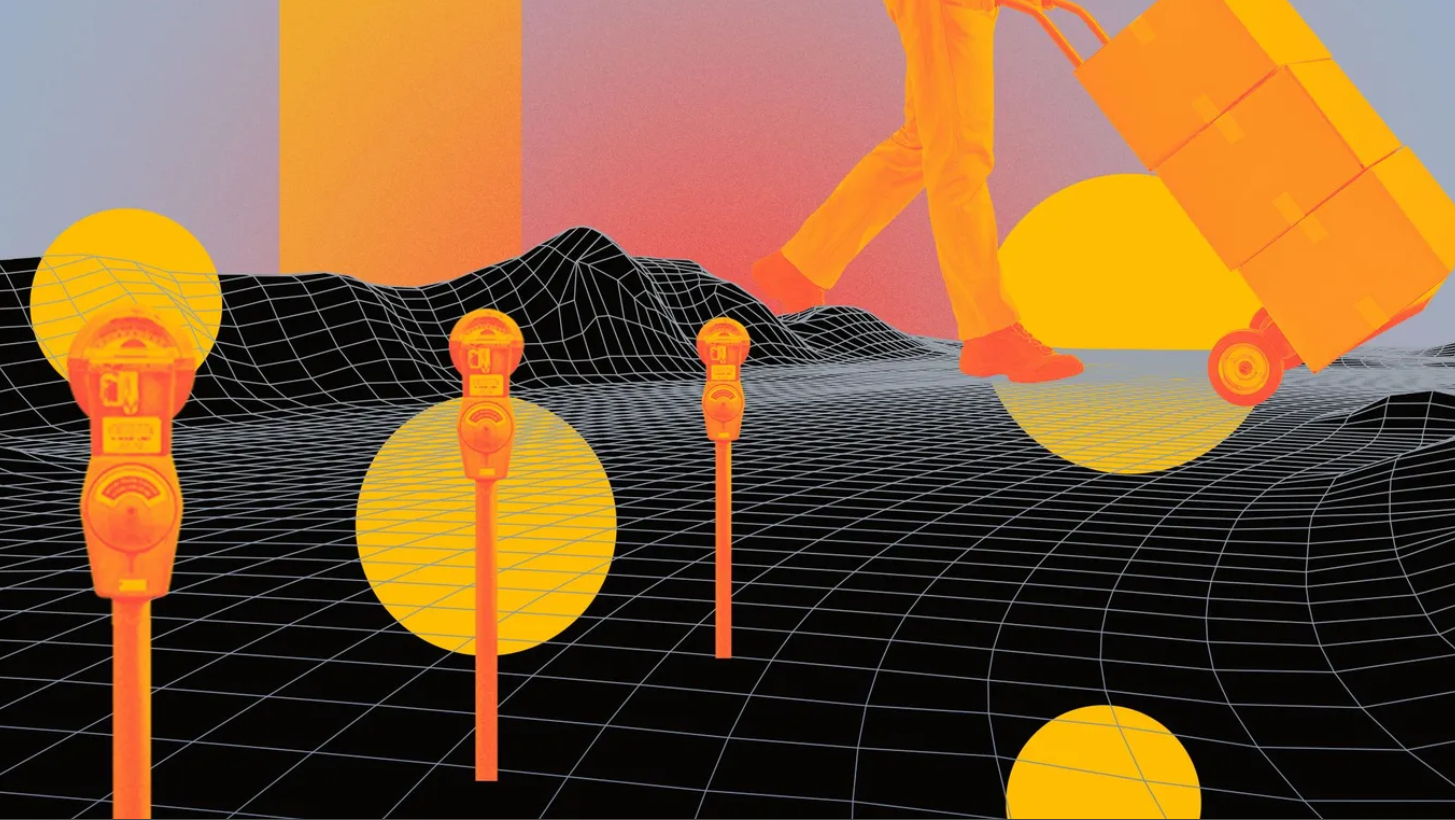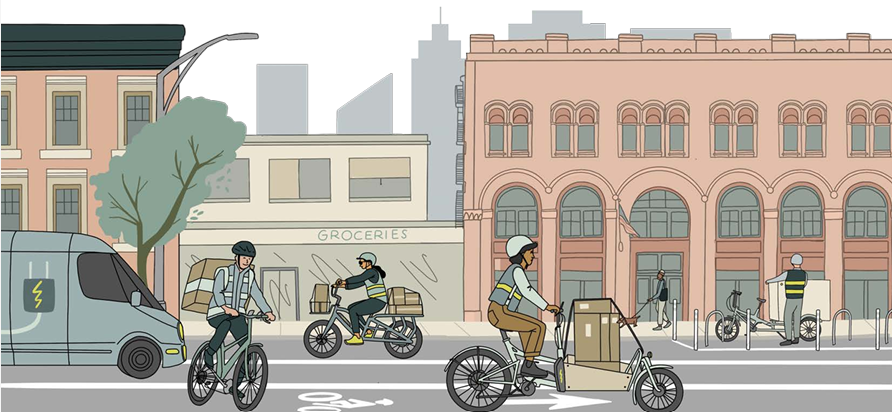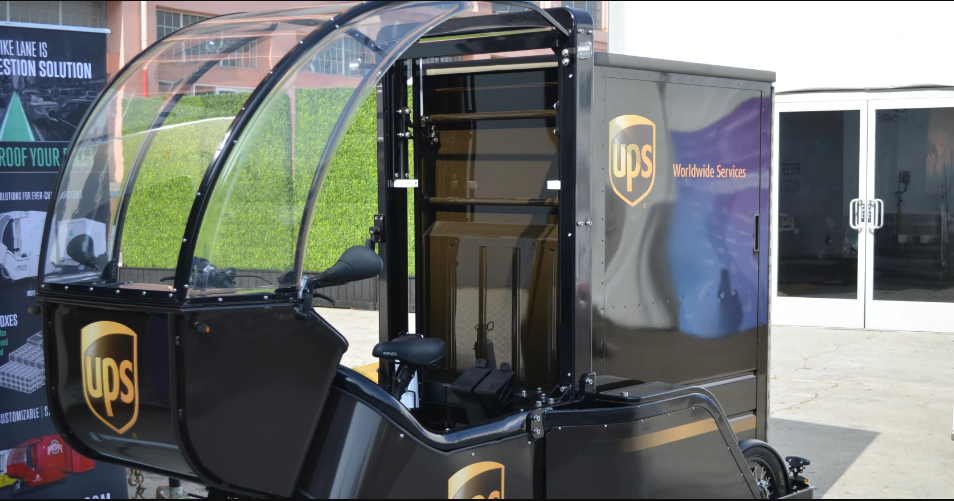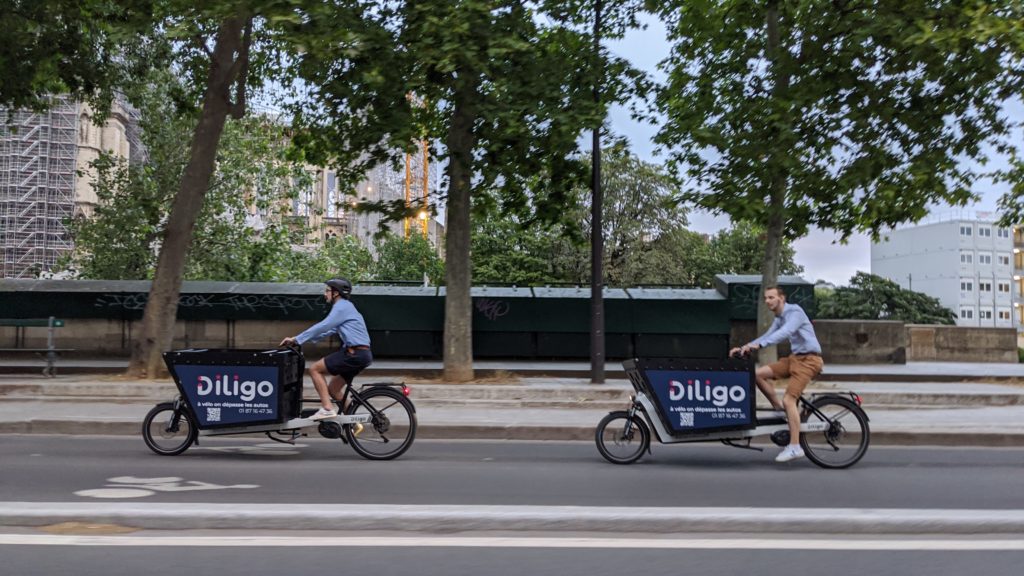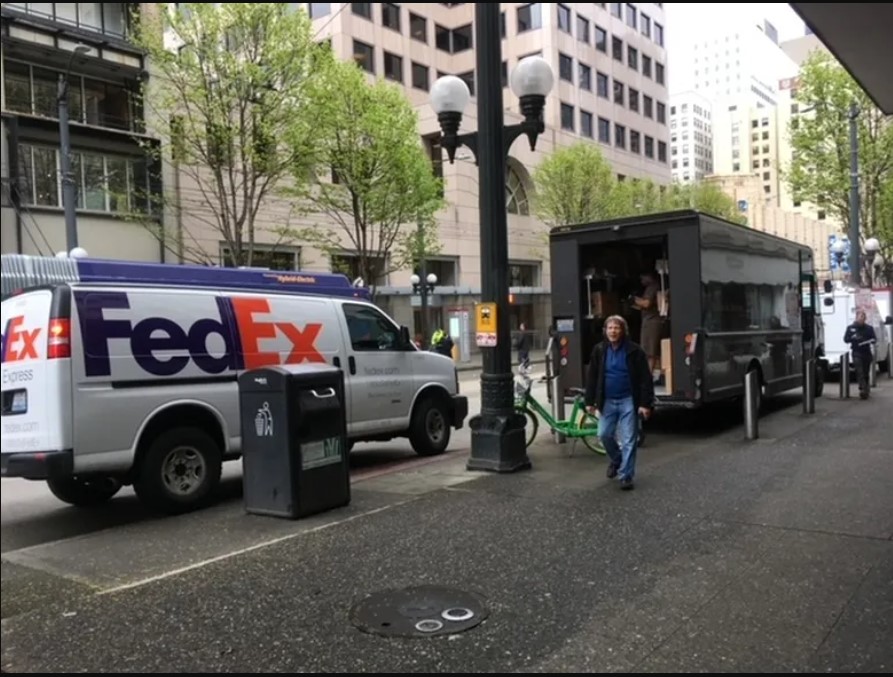In the Media
November 27, 2023 //
More than a million meals are delivered to needy families using cargo bikes that zip along the streets of Seattle without producing pollution or noise. It's an initiative that connects the U.S. to Vicenza, Italy, because the person designing the logistical, marketing, and economic part of this solidarity-based activity is Giacomo Dalla Chiara from Vicenza.
November 21, 2023 //
Seattle Department of Transportation (SDOT), in collaboration with King County Metro, has completed the final design on the Route 40 Transit-Plus Multimodal Corridor project. The project will create a safer and more reliable bus route and Seattle’s first-ever freight- and bus-only lane. The project now moves to the contractor selection process, with construction anticipated to begin in 2024.
After receiving the feedback from the community, SDOT updated the final design with confirmed plans to launch a freight and bus-only Lane pilot project on Westlake Avenue North. The pilot will last for one year and will allow freight trucks that are more than 26,000 pounds to use select bus lanes, be in effect 24/7, and be evaluated by the Urban Freight Lab.
November 5, 2023 //
The University of Washington's prestigious Urban Freight Lab recently included the Pedaling Relief Project in its research paper "Biking the Goods," which presents the Cascade initiative as a national example of how cargo bikes are being used to serve an important public need.
November 1, 2023 //
Related projects include an intelligent transportation system, which uses cameras and other "smart city" tech to improve safety at intersections and elsewhere, and the Final 50 Feet program, to facilitate last-mile delivery. The latter is part of a public-private partnership with the University of Washington called the Urban Freight Lab.
November 1, 2023 //
Related projects include an intelligent transportation system, which uses cameras and other "smart city" tech to improve safety at intersections and elsewhere, and the Final 50 Feet program, to facilitate last-mile delivery.
October 19, 2023 //
The good folks at Urban Freight Lab have just released an important report — Biking The Goods: How North American Cities Can Prepare for and Promote Large-Scale Adoption of Cargo e-Bikes. While it’s a must-read for anyone interested in improving our streets, cities and delivery systems, it clocks in at a hefty 40 pages. For the “tl;dr” crowd, here’s an abridged synopsis of some key findings.
September 8, 2023 //
New York City's Department of Transportation is considering a rule change that would allow for the use of electric cargo-bike delivery vehicles. Experts say the vehicles often perform better than their gas-powered counterparts in urban settings. Neighborhood electric vehicles (NEVs) “can certainly have a place in the logistics network,” said Kelly Rula, director of policy and partnerships at the Urban Freight Lab at the University of Washington, “especially if they can offer a slightly larger carrying capacity than cargo bikes, trailers and quads but still provide carbon and safety improvements.”
August 31, 2023 //
By Karen Kroll Nailing down the final inches of a delivery can be complex. Fortunately, a variety of solutions show promise to help shippers navigate that crucial leg. Every second of every day in 2022, 674 parcels were generated in the United States, or about 21.2 billion for the year, Pitney Bowes reports. Ensuring those packages get to the right recipients, safely and on time, presents numerous logistics challenges. And the challenges often get dicier, as well as pricier, toward...
August 31, 2023 //
With Boston Delivers, the City of Boston aims to support local businesses, reduce pollution, improve street safety, and ease the traffic congestion caused by the expansion of delivery services in recent years.
August 23, 2023 //
Fiete Krutein, a former University of Washington researcher who co-authored a paper on evacuating isolated islands, said one of the most important steps local governments can take to ensure everyone gets off an island when a hurricane hits is to have an evacuation plan in place.
August 21, 2023 //
The City of Boston and the Boston Transportation Department have launched an e-cargo bike delivery pilot program aimed at serving local residents and businesses. The program also serves as a case study for the Urban Freight Lab to inform worldwide efforts to encourage deliveries on e-cargo bikes.
August 15, 2023 //
Today Mayor Michelle Wu and the Boston Transportation Department (BTD) announced the launch of Boston Delivers, an e-cargo bike delivery pilot program, to serve local residents and businesses. Boston Delivers will serve as a case study for The Urban Freight Lab at The University of Washington to help inform worldwide efforts to encourage deliveries on e-cargo bikes.
July 6, 2023 //
Shipping products with less urgency can cut down on environmental harms from e-commerce, Anne Goodchild says. If companies don’t send out each order as quickly as possible, they can plan more efficient routes, fill delivery vans entirely, and dispatch fewer, larger vehicles.
June 10, 2023 //
"You can carry a lot more with a truck, but it spends about 80% of its time parked on its routes,” said Giacomo Dalla Chiara. "But the driver has to get out and walk, and once you do that, it's a mode of transport much less efficient, which the total number of packages delivered does not show."
June 9, 2023 //
In the age of e-commerce, the supply chain now stops at millions of front doors. And with that convenience comes a logistics nightmare.
Cities worldwide are being overrun by urban freight and find their streets and buildings are not designed to manage expanding fleets of trucks and vans bringing a daily flood of parcels.


